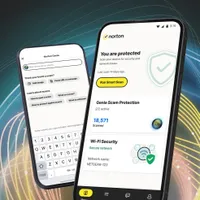How to bypass VPN blocks and restrictions
Having problems getting online with your VPN? Here's how to bypass common block types

Here at Tom’s Guide our expert editors are committed to bringing you the best news, reviews and guides to help you stay informed and ahead of the curve!
You are now subscribed
Your newsletter sign-up was successful
Want to add more newsletters?

Daily (Mon-Sun)
Tom's Guide Daily
Sign up to get the latest updates on all of your favorite content! From cutting-edge tech news and the hottest streaming buzz to unbeatable deals on the best products and in-depth reviews, we’ve got you covered.

Weekly on Thursday
Tom's AI Guide
Be AI savvy with your weekly newsletter summing up all the biggest AI news you need to know. Plus, analysis from our AI editor and tips on how to use the latest AI tools!

Weekly on Friday
Tom's iGuide
Unlock the vast world of Apple news straight to your inbox. With coverage on everything from exciting product launches to essential software updates, this is your go-to source for the latest updates on all the best Apple content.

Weekly on Monday
Tom's Streaming Guide
Our weekly newsletter is expertly crafted to immerse you in the world of streaming. Stay updated on the latest releases and our top recommendations across your favorite streaming platforms.
Join the club
Get full access to premium articles, exclusive features and a growing list of member rewards.
Using one of the best VPNs offers a huge range of benefits, from protecting you on public Wi-Fi to accessing streaming content from across the globe.
However, if you can't get online while using a VPN because of blocks, you're not going to be reaping these benefits. Your internet traffic will be more susceptible to being tracked, and you won't be able to access geoblocked content.
There are a lot of reasons that a VPN may be blocked, from government regulation to network settings. In this guide, we're going to explore the ways that VPNs can be blocked as well as what you can do to get around them, and get back to being safe online.
Norton VPN Plus: It's always a bummer to miss your favorite local shows when you're traveling. With Norton VPN Plus, you never have to run into that problem. Norton has more than 100 server locations across the globe, so even when you're away from home, you can use an IP address that lets you watch your favorite content without a hiccup.
Places that can block VPNs
There are a number of different locations that may block VPNs for one reason or another. Colleges and workplaces may block VPN use to ensure that you are not bypassing any content restrictions or evading monitoring.
Certain online platforms may block VPNs, too, with the likes of Netflix and Disney+ using (imperfect) VPN blocks to prevent people from accessing content that's available in other countries.
Another use case for VPN blocks is, unfortunately, their use by authoritarian countries. Some countries may block VPNs as they help citizens evade mass surveillance, which countries like China, Belarus, and Turkmenistan really don't want their people to be able to do.
In countries like these, the technology used to block VPNs tends to be very sophisticated, but it is still not infallible.
Types of blocks and how to get around them
There isn't a one-size-fits-all way of blocking VPNs. Different institutions, ranging from schools up to nation states, may block VPNs through a variety of different methods.
The three most common types of blocks are server blacklisting, port blocking, and deep packet inspection.
However, all of these blocking methods can be circumvented through certain techniques: here's how.
Server blacklisting
Server blacklisting is a relatively basic but widely-used method of blocking VPNs. As the IP range of servers comes to be known, they can be blocked, which you've likely experienced while using a VPN to browse the internet.
This can be done at a website level or a router level, but there are ways around it. Simply switching to a different server may be enough, if its IP address hasn't already been blocked. You may also wish to use a VPN provider that offers dedicated IPs, which aren't shared with other users, as these are less likely to be blocked.
This is why choosing a VPN provider with a wide range of servers available tends to be advantageous, as the more servers a provider has, the less likely it is that they'll all be blocked.
Port blocking
Another method of blocking VPN usage is to block traffic from certain ports. The most common ports that VPNs use to tunnel are ports 443, 500, and 4500.
If your network blocks traffic on certain ports, you'll need to change your VPN's port settings.
This can be done by changing the ports so that you're using port 80 or port 443, which are both common ports for standard internet traffic, making blocking these ports impractical.
Deep packet inspection
Deep packet inspection is a technology that analyzes the data that you send over the network. This can be classified into different types and blocked accordingly, and VPN traffic can be detected and completely blocked. However, this isn't infallible.
Shadowsocks, an encrypted proxy protocol, can help circumvent deep packet inspection, and VPN obfuscation can also help.
Obfuscating your VPN traffic disguises your activity as standard HTTPS traffic or may mix in dummy data to bypass deep packet inspection.
Are there any risks of bypassing VPN blocks and restrictions?
Circumventing VPN blocks is never completely safe, and it pays to use your common sense. For example, bypassing VPN blocks to access games at work doesn't stop someone from seeing what you're doing over your shoulder, and it could lead to you being dismissed for gross misconduct.
Meanwhile, circumventing blocks in academic institutions, like in college, could lead to ramifications like suspension or expulsion.
Bypassing VPN blocks on streaming platforms isn't without its risks, either, as it could lead to an account suspension (although we've never actually heard of this happening).
If you live in an authoritarian country, you need to be even more careful, as if you're caught using a VPN where they're banned, you could face fines or even imprisonment.
Evading VPN blocks is a vital tool in your internet privacy arsenal, but, like most things, it isn't without its risks. Be responsible, be cautious, and use your head.
We test and review VPN services in the context of legal recreational uses. For example: 1. Accessing a service from another country (subject to the terms and conditions of that service). 2. Protecting your online security and strengthening your online privacy when abroad. We do not support or condone the illegal or malicious use of VPN services. Consuming pirated content that is paid-for is neither endorsed nor approved by Future Publishing.

Joe is a gaming and tech journalist with a strong interest in cybersecurity and privacy. He has written for GamesRadar+, The Guardian, PC Gamer, in addition to Tom's Guide. His interest in digital privacy developed following Edward Snowden's leaks in 2013, leading him to gain a deep knowledge of various online privacy practices, including the use of privacy-focused browser extensions and VPNs.
- Olivia PowellTech Software Commissioning Editor
You must confirm your public display name before commenting
Please logout and then login again, you will then be prompted to enter your display name.
 Club Benefits
Club Benefits











